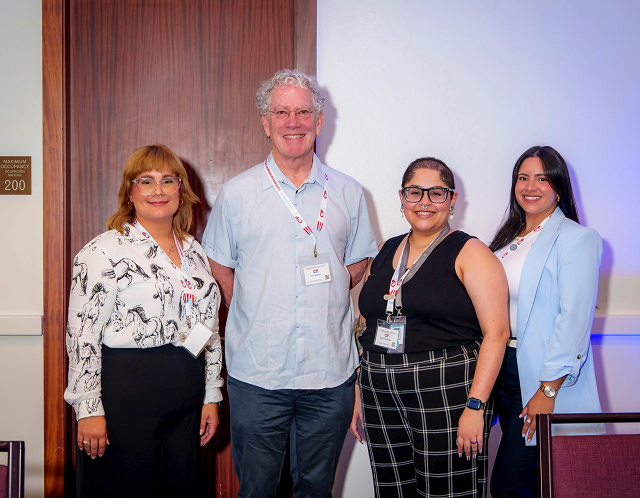Contextualizing Care — Functional Family Therapy at the 40th Inter-American Congress of Psychology in Puerto Rico
In the warm, resilient heart of Puerto Rico, where history, culture, and adversity intertwine, the 40th Inter-American Congress of Psychology unfolded not just as an academic gathering but as a celebration of shared humanity. Functional Family Therapy (FFT) Partners had the privilege of presenting a major milestone in our multi-year collaboration with local partner Grupo Nexos: the contextualization of FFT for Puerto Rico’s unique child welfare system.
From Evidence-Based Practice to Contextualized Care
For more than three years, FFT Partners and Grupo Nexos have worked side-by-side to develop a contextualized version of FFT that responds to the real-world challenges Puerto Rican families face. Through a study of 60 families across varying socioeconomic levels, we’ve reimagined FFT’s delivery, not by altering the core of what works, but by adapting how it works. This process, called contextualization, ensures that evidence-based practices retain their effectiveness while honoring local culture, community dynamics, and systemic realities.
Tom Sexton, a leader in the project, explained the heart of this approach: “Contextualization keeps the core change mechanisms intact but adjusts delivery parameters to fit a culture’s specific needs—whether it’s the family lens, the dosage and format of sessions, or the creative ways clinicians meet families where they are.”
A Model Born from Puerto Rico's Reality
The need for this work is urgent. Puerto Rico continues to endure the long-term effects of Hurricane Maria and other natural disasters. Families struggle under the weight of unreliable infrastructure—frequent power outages, water supply issues, and communication disruptions—while also navigating deep-seated distrust in government systems and the ongoing legacy of colonization. Poverty is widespread, and many children face significant barriers to educational success.
Yet even amid these obstacles, Puerto Rico’s communities are rich with resilience and relational strength. Migration has reshaped family structures, making community networks more vital than ever. The FFT contextualization model embraces this reality, emphasizing a flexible but structured approach that supports families’ capacity to heal and thrive.
Receptivity, Recognition, and the Road Ahead
Presenting these findings at the Congress was both a professional and personal highlight. The conference itself was a vibrant mosaic of cultures and voices, drawing psychologists, students, and practitioners from across the Americas and the Caribbean. Beyond the lectures and panel discussions, the event was filled with powerful human moments—reunions, cultural celebrations, and new bonds forged between people committed to transformation.
The presentation was met with enthusiasm, particularly from young professionals in Puerto Rico, who voiced excitement about implementing practices that both honor and empower their communities. The Casey Foundation also expressed interest in exploring the broader applicability of the contextualization model for other evidence-based practices.
Why This Matters
This isn’t just about FFT. It’s about evolving how we think about implementation science, especially in communities shaped by trauma, migration, and systemic inequality. Puerto Rico has shown us that adaptation isn’t enough. True, sustained impact comes from contextualization—from taking time to listen, to learn, and to build together with those we serve.
At the end of the week, amid the music, conversations, and cultural pride that filled the halls of the Congress, one truth rang clear: Psychology must transcend borders, both geographic and conceptual. As we left Puerto Rico, we carried with us not just data or models, but renewed purpose, grounded in relationship and respect.
The Inter-American Congress event is organized each year by The Inter-American Society of Psychology (ISP). ISP aims to foster scientific research and professional relationships by promoting collaboration in psychology across North America, Central America, the Caribbean, and South America, supporting behavioral science research and scholarly exchange, and strengthening cross-cultural understanding among professionals.
Interested in learning more about FFT’s contextualization work or bringing this model to your region?
Contact us to start the conversation.

